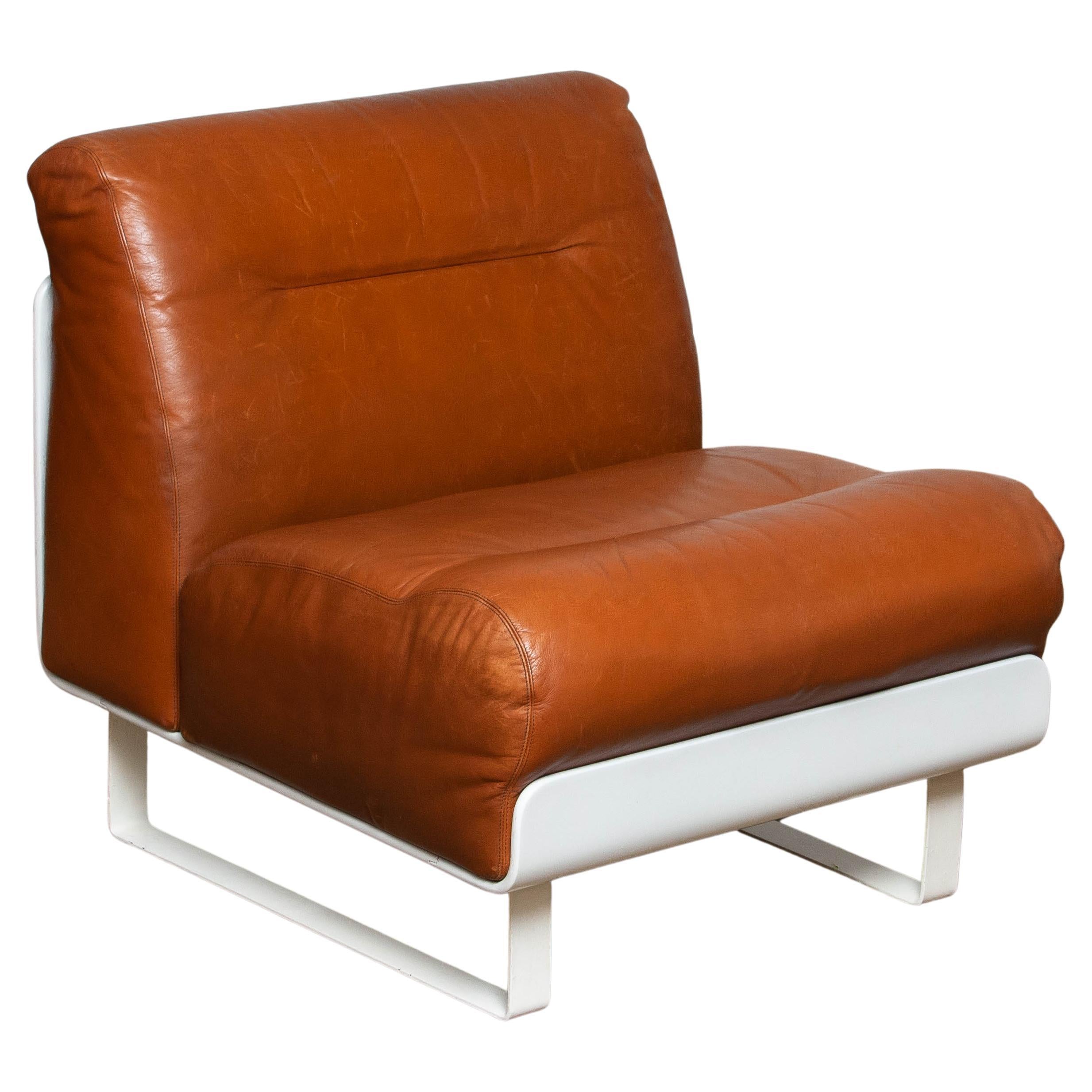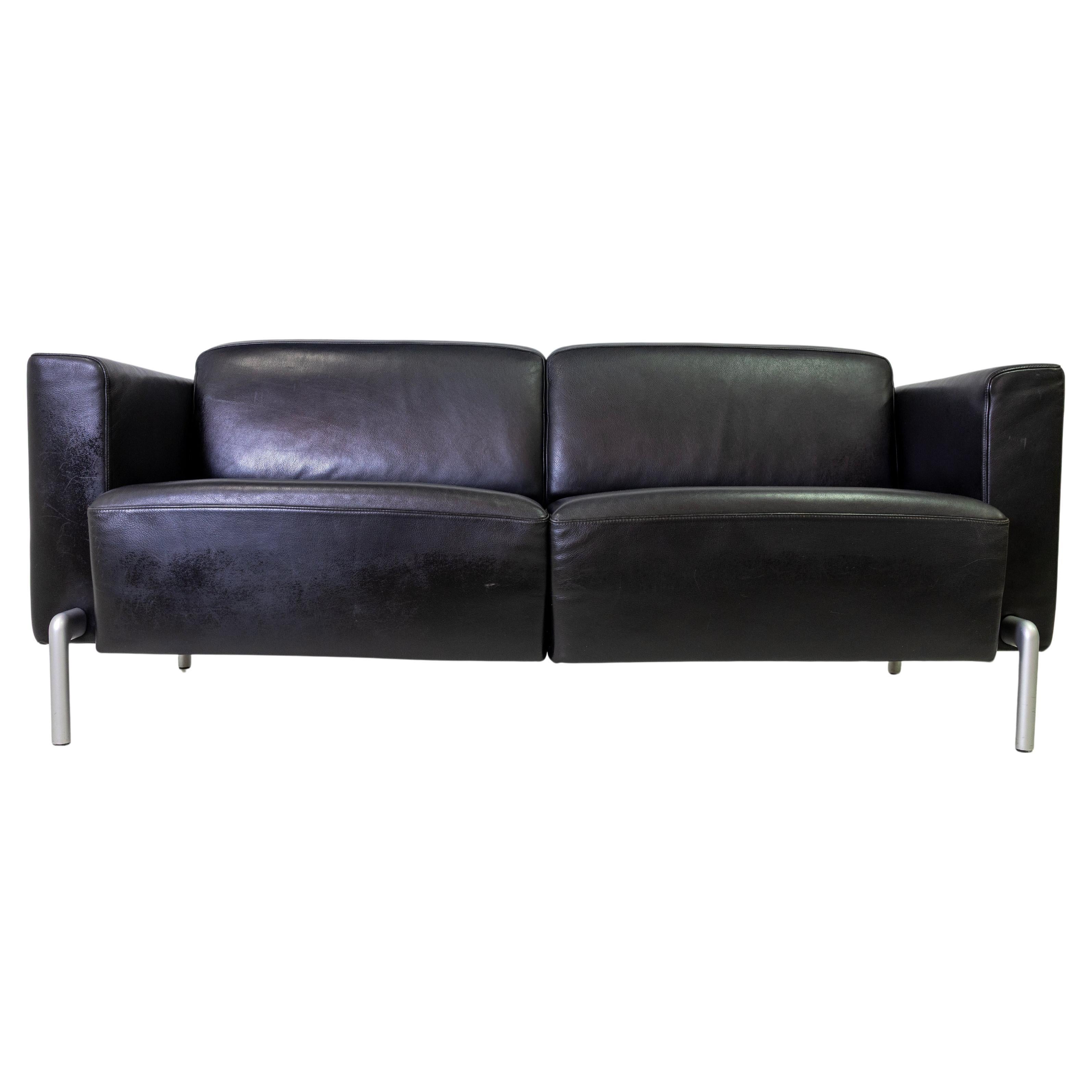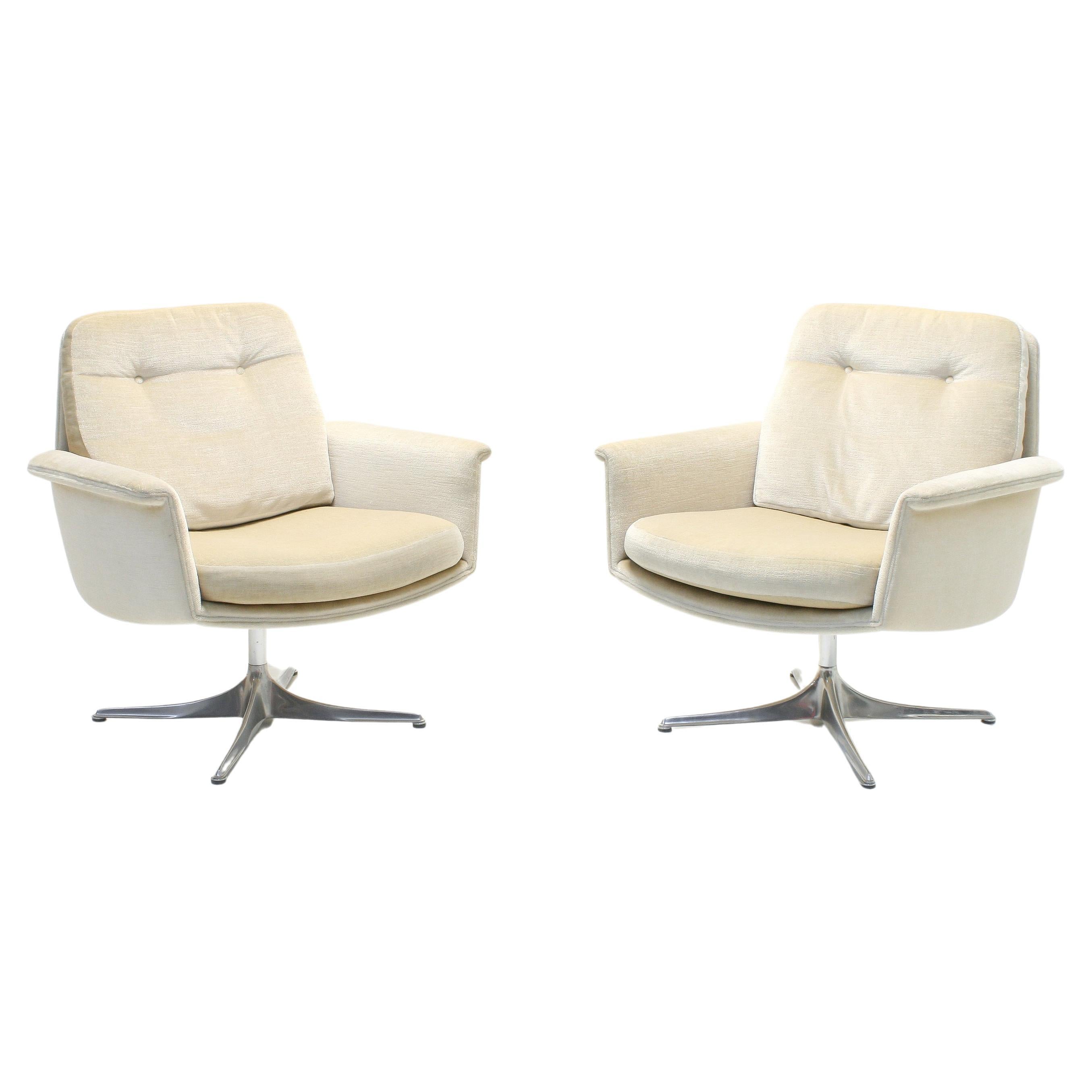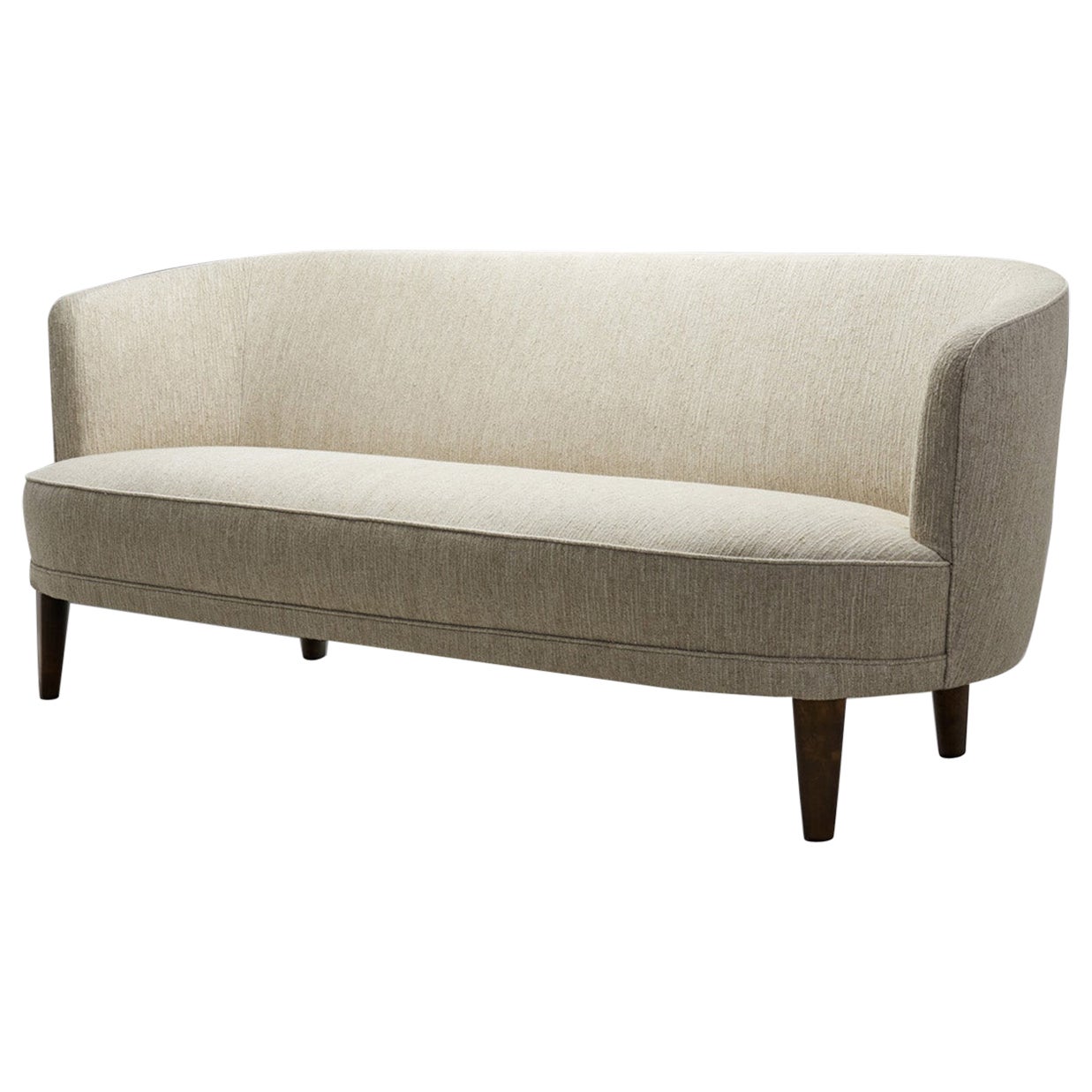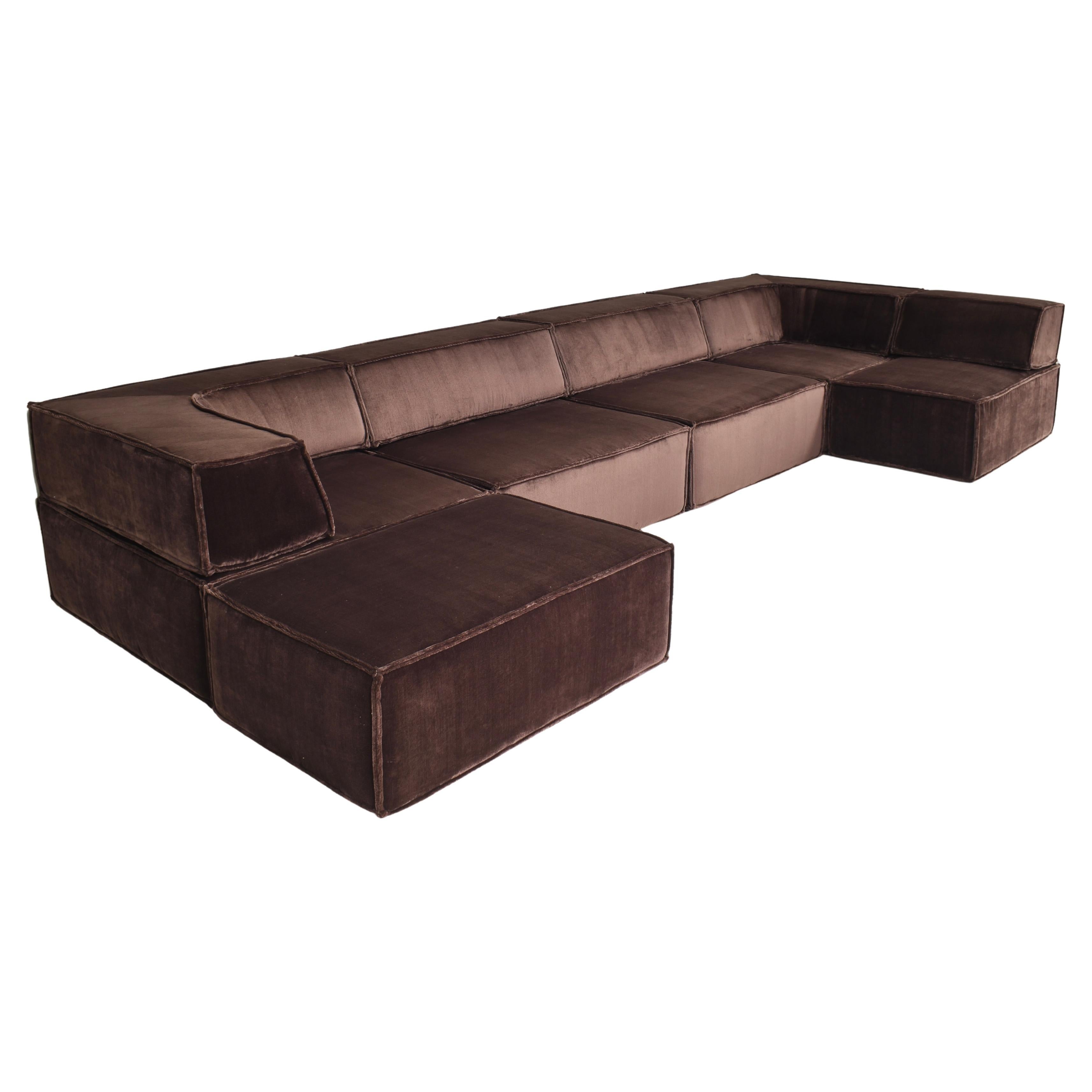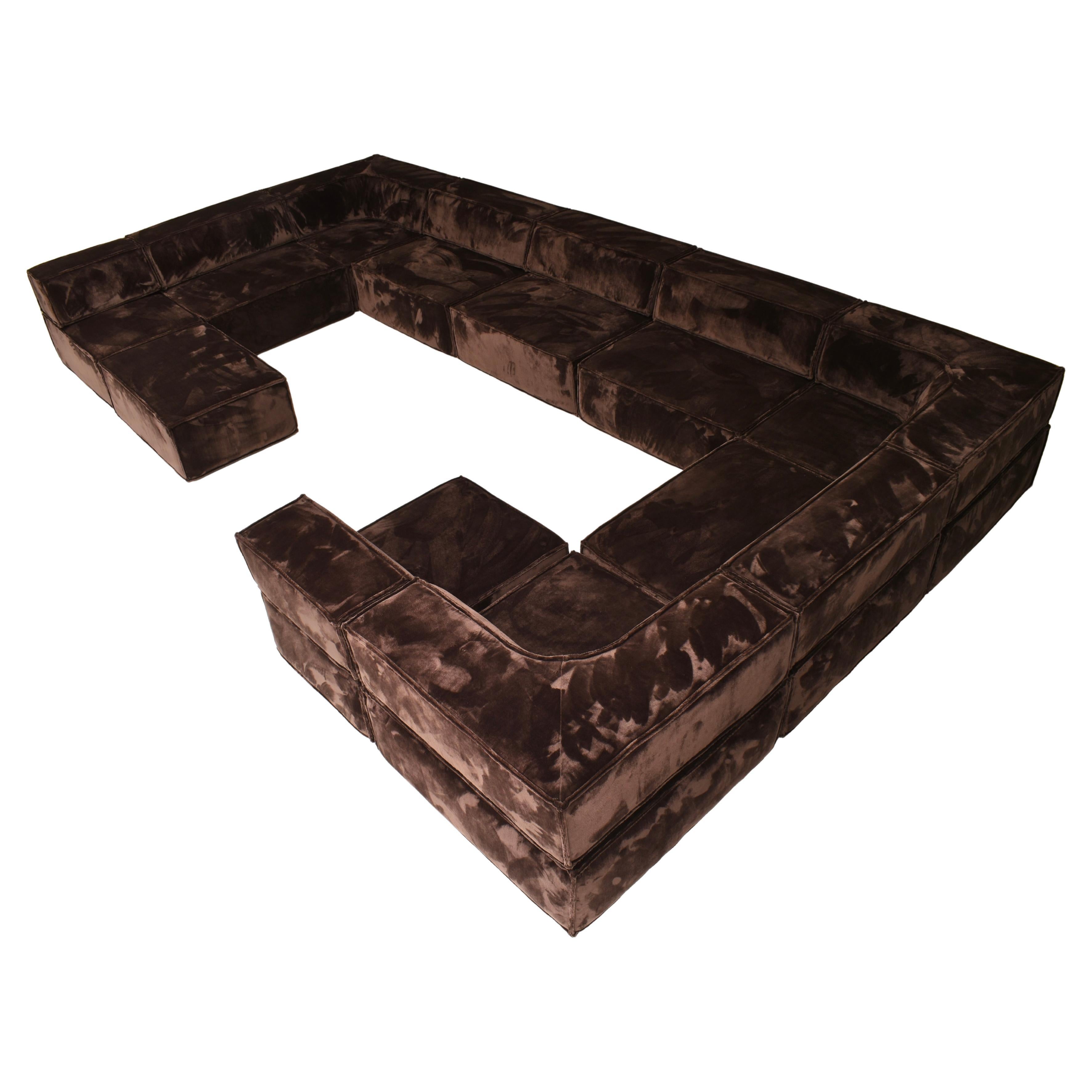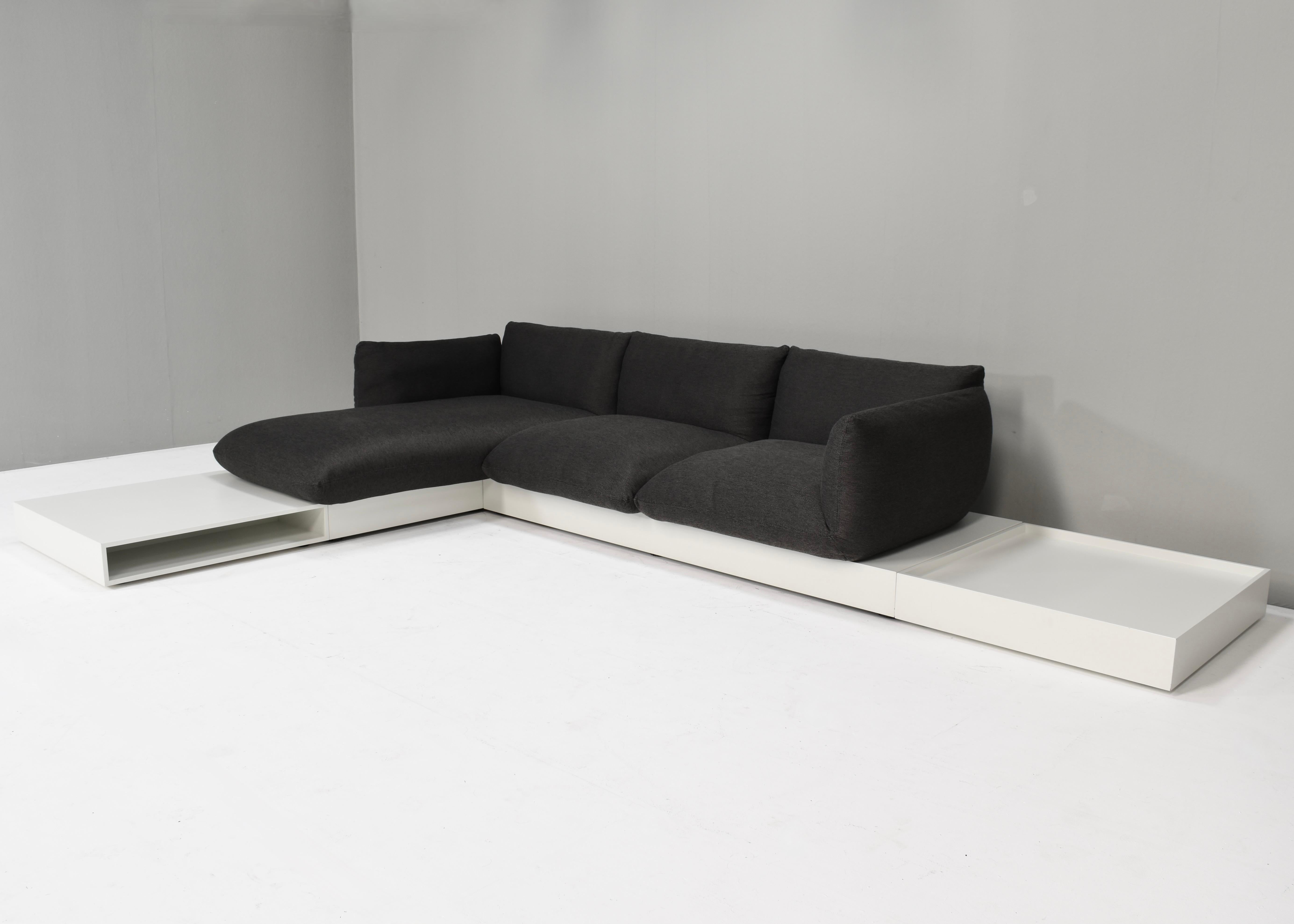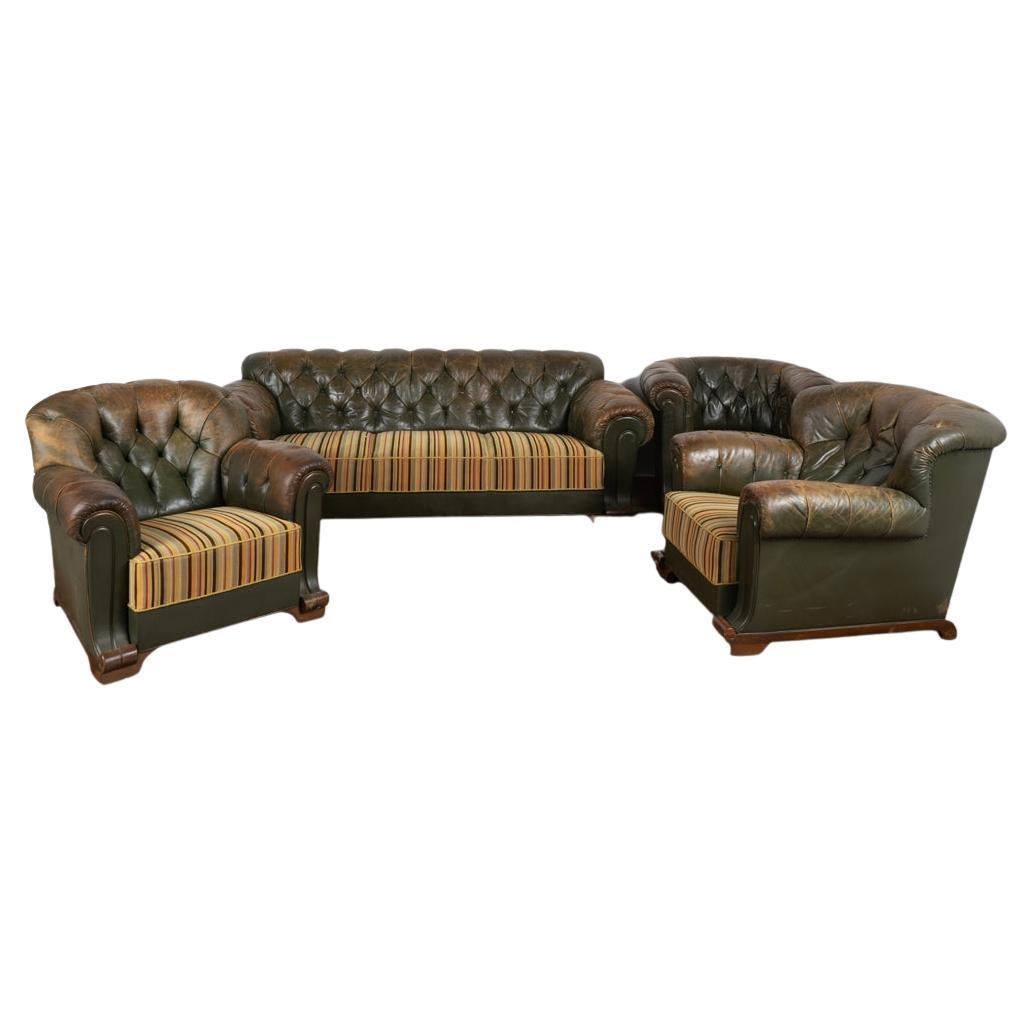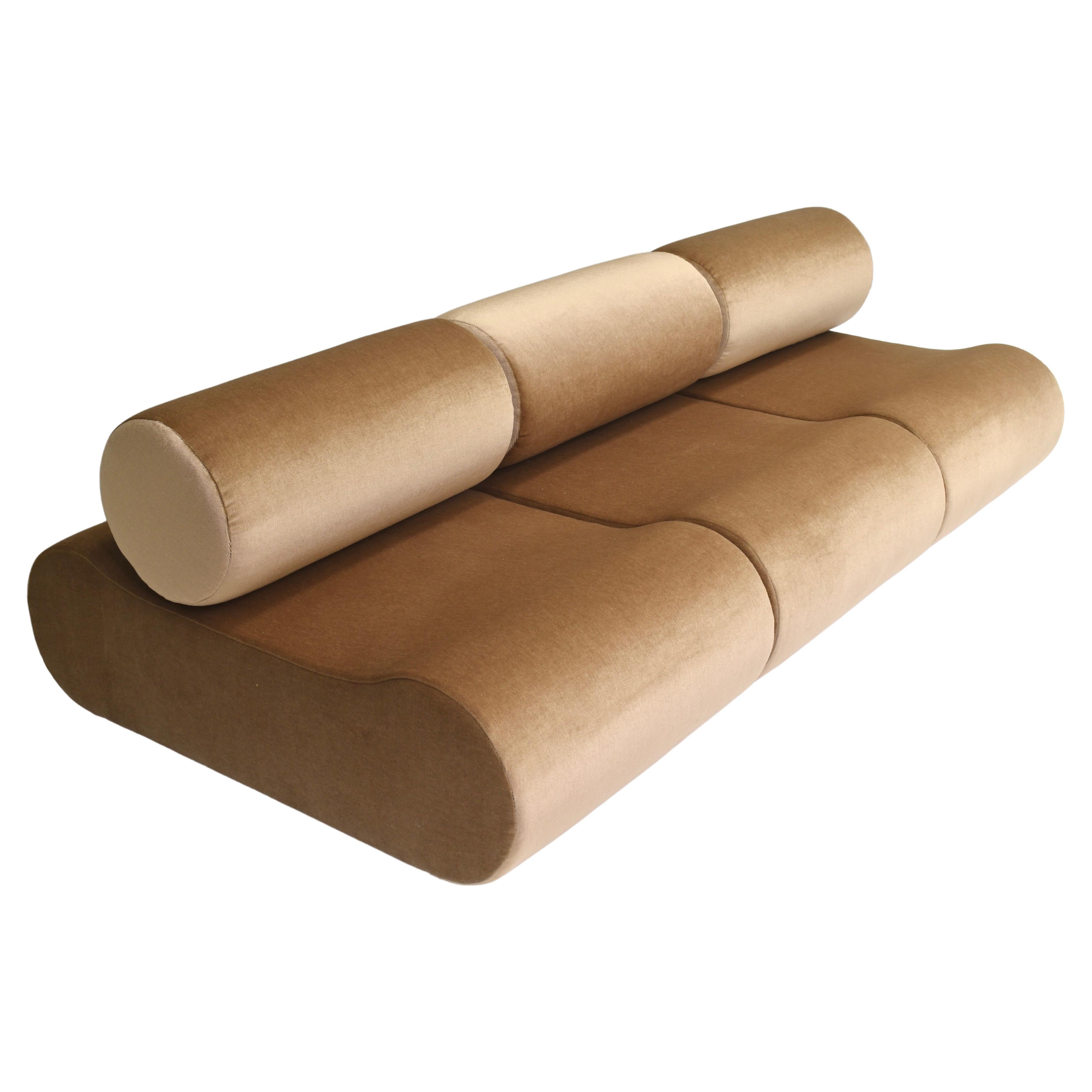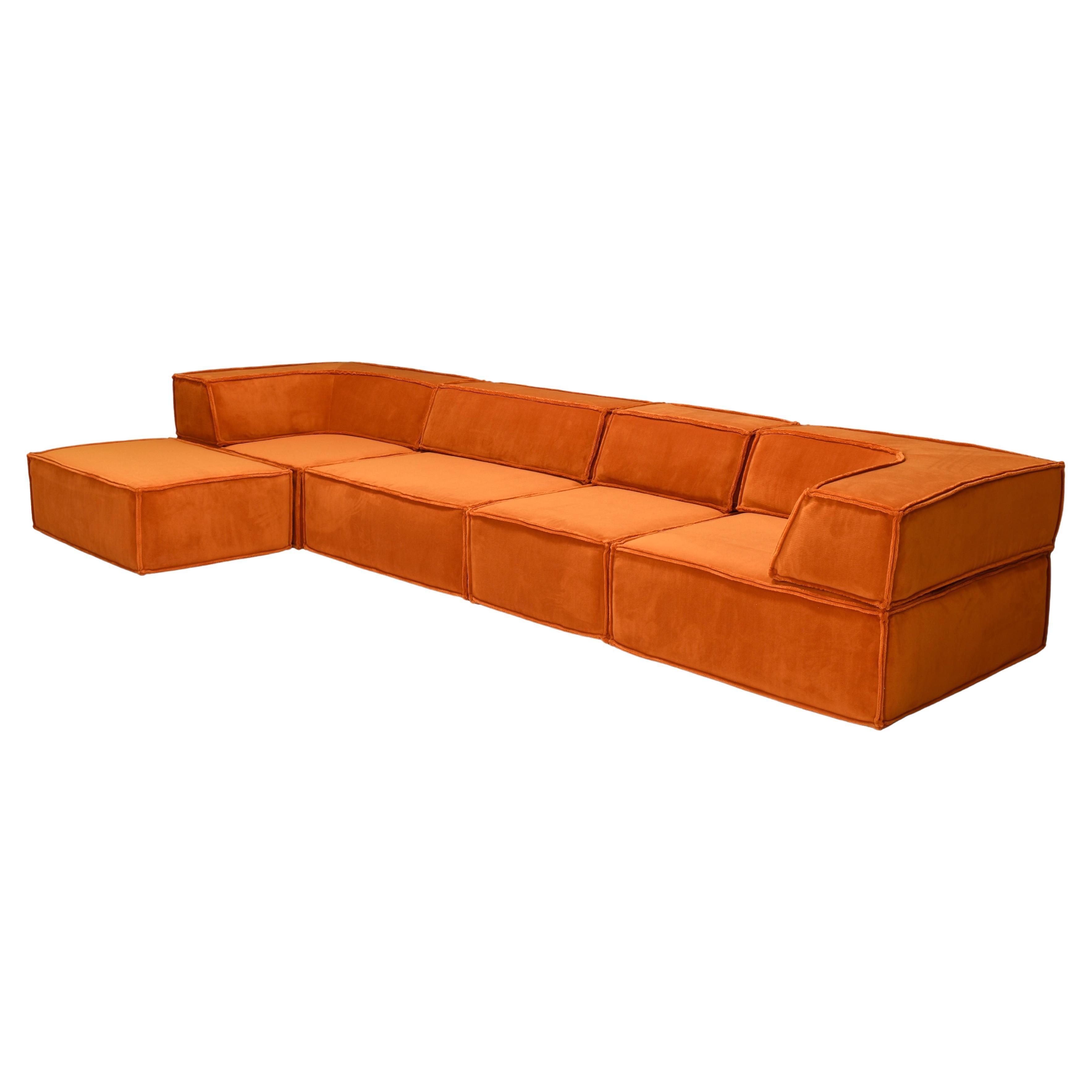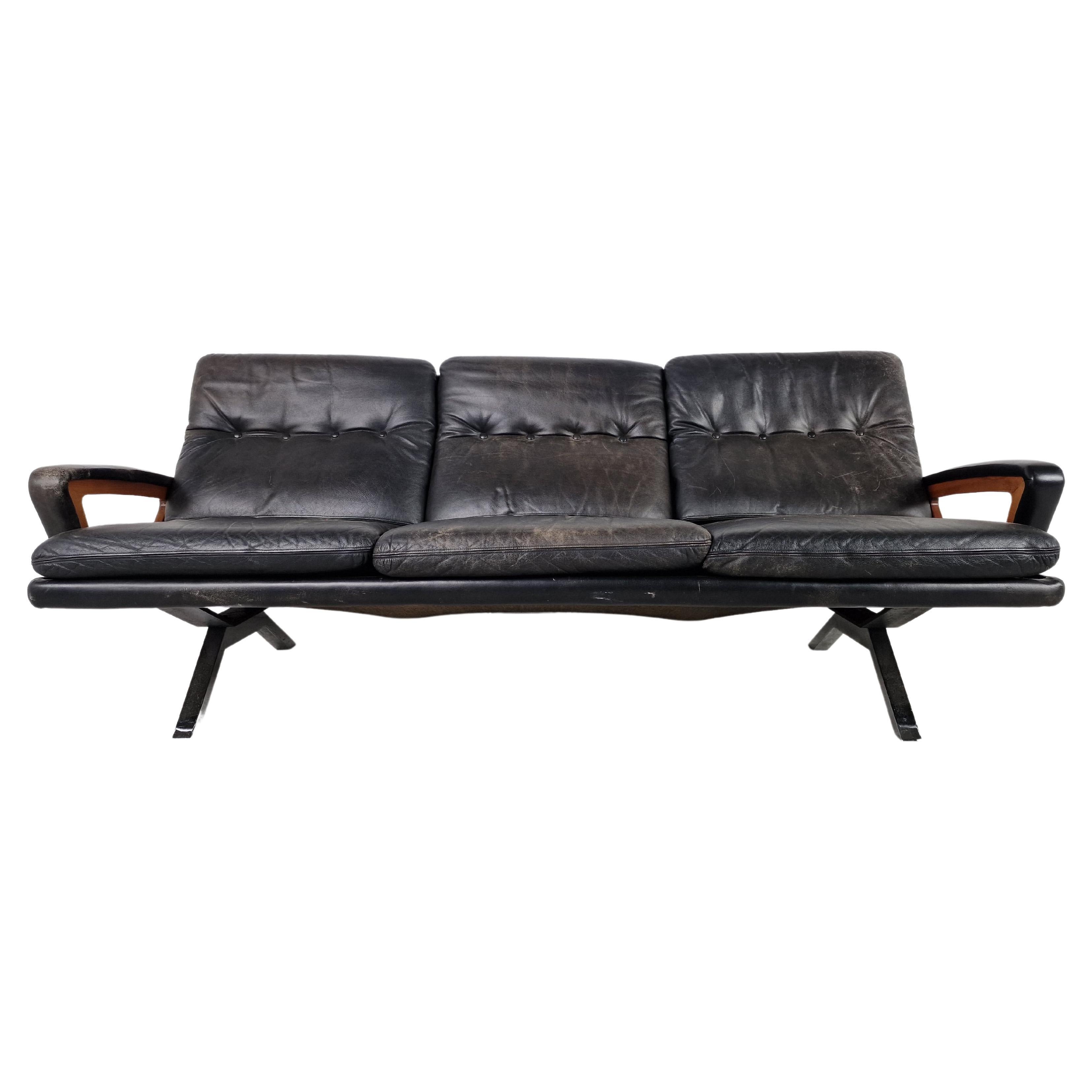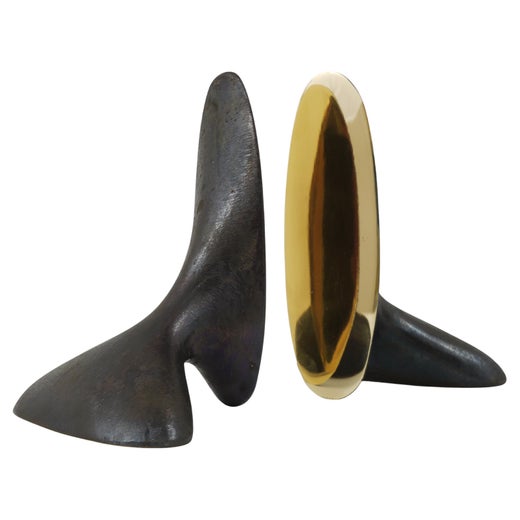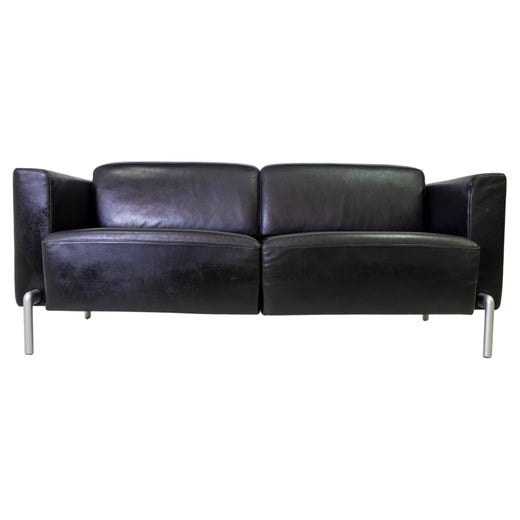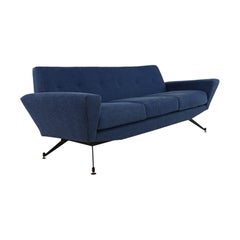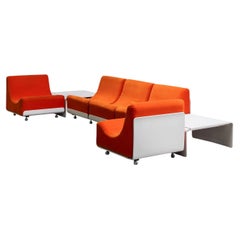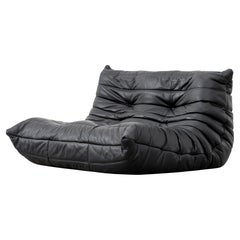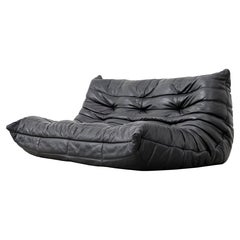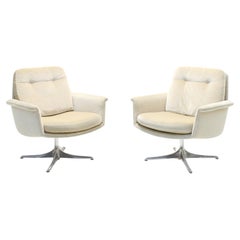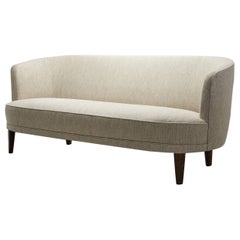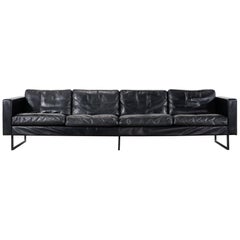
Carl Auböck Cubus Sofa, Extremely Rare Three-Seat by COR Germany, circa 1960
View Similar Items
Carl Auböck Cubus Sofa, Extremely Rare Three-Seat by COR Germany, circa 1960
About the Item
- Creator:COR (Manufacturer),Werkstätte Carl Auböck (Designer)
- Dimensions:Height: 23.23 in (59 cm)Width: 102.37 in (260 cm)Depth: 31.5 in (80 cm)
- Style:Mid-Century Modern (Of the Period)
- Materials and Techniques:
- Place of Origin:
- Period:
- Date of Manufacture:circa 1960
- Condition:Wear consistent with age and use.
- Seller Location:Munster, DE
- Reference Number:1stDibs: LU1391210020123
Werkstätte Carl Auböck
In Vienna’s Neubau district, a beautiful Biedermeier townhouse has been home to the Werkstätte Carl Auböck for more than 100 years. Inside the workshop, where production continues to this day, countless objects line the shelves, walls, tabletops and desktops.
The Viennese artist and designer Carl Auböck II was one of the quirkiest and most delightful and collectible of modern designers. A rather odd duck in the world of decorative arts, he was a peculiar talent whose specialties included smaller desk accessories and tabletop pieces such as corkscrews, paperweights, letter openers, bookends and bottle stoppers. He rendered these pieces in a combination of metal — most often brass — and such elemental materials as leather, knobby wood and animal horn, creating forms that could be almost Surrealist, from hands and feet to keys, birds and amoebae.
As a boy, Auböck was precocious and artistic. He studied drawing and at the same time trained in the workshop of his father, Karl Heinrich Auböck, a popular maker of traditional bronze figurines and collectibles. In 1919, Carl II went to Germany to study at the Bauhaus, where he was a pupil of the progressive artist and theorist Johannes Itten. While the Bauhaus is most associated with the rigidly ordered, functionalist architecture of its directors Walter Gropius and Ludwig Mies van der Rohe, the school was in reality a liberal, spirited place — a crucible for imaginative, playful and avant-garde art and design. It was this spirit that imbued Carl II’s work from the time he left in 1921.
In 1922 or ’23, Carl Auböck II returned to Vienna to help care for his ailing father, and he took over the business. He created the Werkstätte Carl Auböck and a legacy that earned his objects cult status among collectors. The business was passed on to his descendants, who run the atelier that is still in operation today. Today, objects designed by Carl II make up 90 percent of Werkstätte Carl Auböck’s production, joined by the creations of architect and designer Carl IV, his grandson.
Vintage Auböck designs have a special character, a patina that only emphasizes how much the pieces have been loved and used. Carl Aubock II’s small furniture items — leather- or caned-sling magazine racks; free-edge wooden side tables with tubular bronze legs; wicker serving trolleys with turned beechwood wheels — are elegant and purposeful. His bijoux desktop objects, library tools, ashtrays and barware pieces evince a kind of mirthful practicality. They seem to ask: “If you need a corkscrew, or a paperweight, or a candlestick, why not make it fun as well as functional?” And indeed, why not?
Find a collection of vintage Werkstätte Carl Auböck mirrors, seating, tables, decorative objects and other furniture on 1stDibs.
COR
Cor is Latin for heart, and COR furniture exemplifies the qualities at the heart of exceptional design: practicality, comfort and style. The company's sofas, lounge chairs and coffee tables capture the essence of the best of mid-century modernism. Simple silhouettes, quality materials and function-first designs ensure that vintage COR furniture is still in high demand with collectors all over the world.
COR was founded in Rheda-Wiedenbrück, Germany, in 1954 by Leo Lübke — in the name of his son, Helmut — and the Prince of Bentheim-Tecklenburg, a northern German county. Nearly a couple of decades prior, in 1937, a manufacturer of bedroom furniture called Interlübke was established by Leo and his brother Hans. The latter’s son Horst, who was managing partner from 1972, retired during the 1990s and his son Helmut Lübke joined Interlübke and shifted the brand’s focus toward modular furniture systems. During the 1980s, the Prince of Bentheim-Tecklenburg left COR and the Lübke family became its sole owner. In 2006, COR-Interlübke retail locations opened their doors.
COR made its mark in 1959 with a sleek modular seating system consisting of five parts called Quinta, which was created by designer Michael Bayer. The upholstered line boasted clean, angular contours and appealed to the day's ever-broadening flexible interior design sensibilities. It remained in production until 1978. The success of the Quinta was followed by the 1964 Conseta system, which featured a sofa and other pieces of seating designed by Friedrich Wilhelm Möller.
The following decades saw more successful collaborations with designers like Peter Maly and Luigi Colani. The latter, a German industrial designer born Lutz Colani, created a range of gorgeous organically shaped Space Age seating for BASF and Fritz Hansen, serveware for Rosenthal and worked on automobile designs for Fiat. Colani designed the popular Orbis line for COR during the 1970s.
In 2000, the Arthe sofa by Wulf Schneider was awarded the prestigious Red Dot Award from the North Rhine-Westphalia Design Centre.
COR is still owned and operated by the Lübke family’s parent company Gebrüder Lübke GmbH & Co. KG and continues to produce furniture at the Rheda-Wiedenbrück factory, sourcing leather from southern Germany and upholstery from Italy. The company partnered with Jehs+Laub, a renowned Stuttgart-based studio, in 2010.
On 1stDibs, find a collection of vintage COR seating, tables and more.
More From This Seller
View AllVintage 1950s Italian Mid-Century Modern Sofas
Metal
Vintage 1960s German Mid-Century Modern Sectional Sofas
Plywood
Vintage 1970s French Mid-Century Modern Sectional Sofas
Leather
Vintage 1970s French Mid-Century Modern Sectional Sofas
Leather
Vintage 1970s Italian Mid-Century Modern Sofas
Leather
Vintage 1970s Italian Mid-Century Modern Sofas
Leather
You May Also Like
Vintage 1970s German Space Age Sofas
Leather, Plywood
1990s German Modern Sofas
Aluminum
Mid-20th Century German Mid-Century Modern Club Chairs
Aluminum
Vintage 1960s Swedish Scandinavian Modern Sofas
Fabric, Wood
Vintage 1970s German Mid-Century Modern Sofas
Fabric, Velvet
Vintage 1970s German Mid-Century Modern Sofas
Fabric, Velvet
